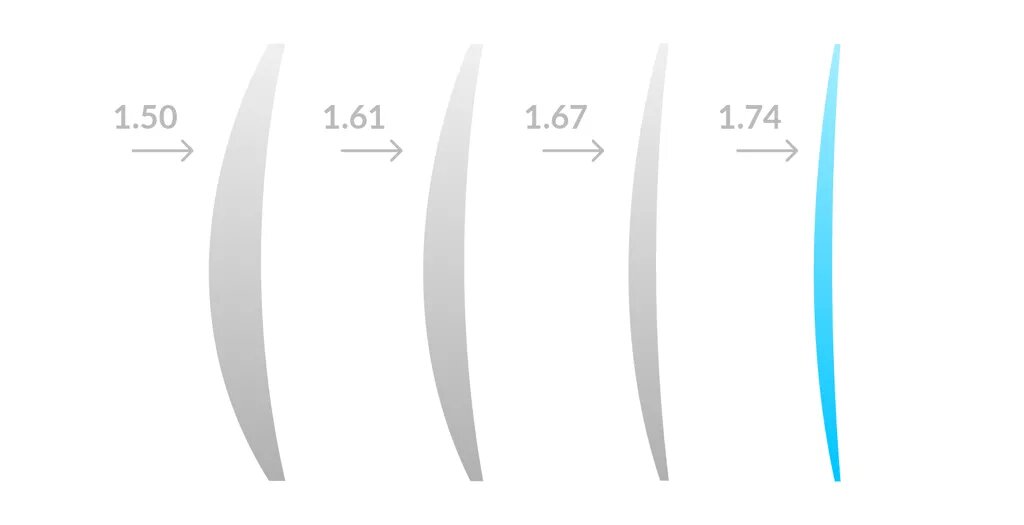One of the questions most people hear when they get their lenses fitted is, "Which refractive index do you need?" I believe that many people do not understand this professional term, let's learn about it today!
Many people in today's society believe that the more expensive glasses are, the better! Many opticians, grasping this psychology of consumers, often use refractive index as a selling point to increase the price of glasses in order to obtain higher economic benefits. That is, the higher the refractive index, the thinner the lens, and the more expensive the price!
The main advantage of high-refractive lenses is their thinness. Consumers in the choice of lenses, must choose according to different eye degrees to suit their own, excellent performance of the lens, blind pursuit of high refractive index is not desirable, suitable is the most important!

Good optical lenses should refer to lenses with good optical properties, which are reflected in high transmittance, high clarity, small dispersion, good wear resistance, excellent coating and good protective function.
Usually the refractive index of lenses includes 1.49, 1.56, 1.61, 1.67, 1.74, 1.8, 1.9.
From a professional point of view to choose the refractive index generally according to the following comprehensive consideration:
1. Degree of myopia.
Myopia can be divided into mild myopia (within 3.00 degrees), moderate myopia (between 3.00 and 6.00 degrees), and high myopia (above 6.00 degrees).
Generally SPEAKING LIGHT AND moderate MYOPIA (400 degrees less than) CHOICE REFRACTIVE INDEX IS 1.56 OK, (300 degrees to 600 degrees) IN 1.56 OR 1.61 these TWO KINDS of REFRACTIVE index choice, 600 degrees above can consider 1.61 or 1.61 refractive index above the lens.
The higher the refractive index is, the more refraction occurs after light passes through the lens, and the thinner the lens is. However, the higher the refractive index is, the more serious the dispersion phenomenon is, so the high refractive index lens has a low Abbe number. In other words, when the refractive index is higher, the lens is thinner, but when looking at things, the vividness of the color is not so rich compared with the 1.56 refractive index. What is mentioned here is only a slight difference in relative comparison. With the current technology, the lens with high refractive index is also excellent in vision. High refractive index lenses are usually used only for thousands of degrees.
2. Subjective needs.
The choice of refractive index according to the degree of myopia is not absolute, but must be combined with the choice of the frame and the actual situation of the eye to decide.
Now myopic degree is generally high, at five to six baidu's myopia, low refractive index of the lens will be thick, relative weight will be a few bigger, at this point, if the pursuit of beautiful degree is higher, we suggest more than 1.61 refractive index, moreover when selecting a picture frame to avoid large box type, so comprehensive, glasses degree of beauty and comfort are relatively well.
Conclusion: THE CHOICE OF refractive index should be based on the advice of a professional optometrist, according to the degree of myopia, frame size, aesthetic needs, visual comfort, consumption amount and other comprehensive considerations, appropriate is the most important.
Post time: Aug-26-2022
